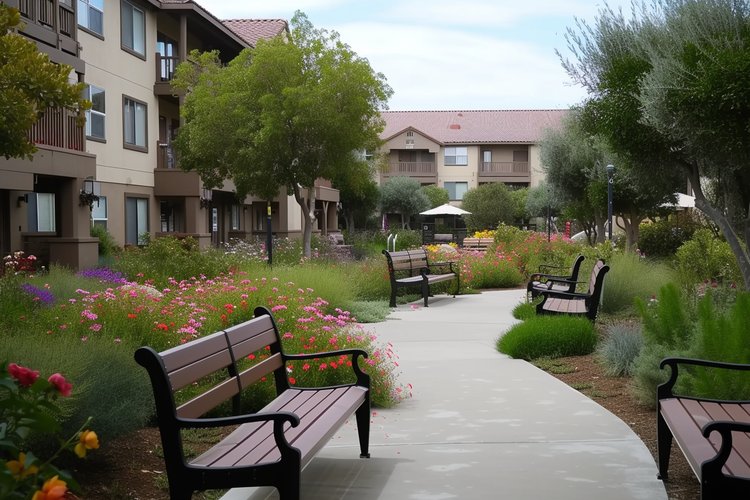Senior Living Options: Your Complete Guide to Retirement
Choosing the right senior living arrangement represents one of life's most significant decisions, affecting comfort, health, and happiness in your golden years. With various options available across the UK, from independent living communities to comprehensive care facilities, understanding your choices helps ensure you find the perfect environment to thrive. Whether you're planning ahead or need immediate assistance for a loved one, exploring senior living options early provides peace of mind and better outcomes.

What Makes the Best Retirement Villages Stand Out?
The best retirement villages combine independence with security, offering purpose-built homes alongside comprehensive amenities and care services. Top-tier retirement villages typically feature on-site healthcare facilities, social clubs, fitness centres, and restaurant-style dining options. Many include 24-hour emergency response systems, maintenance-free living, and organised activities that promote social engagement and mental wellbeing.
Quality retirement villages often provide different levels of accommodation, from apartments to bungalows, allowing residents to choose based on mobility needs and preferences. The most sought-after communities maintain beautiful landscaped grounds, offer transportation services for shopping and appointments, and foster a genuine sense of community among residents.
How to Find Homes That Meet Your Specific Needs
Finding suitable senior homes requires careful consideration of current and future needs, location preferences, and budget constraints. Start by assessing health requirements, mobility limitations, and desired level of independence. Consider proximity to family members, healthcare providers, and familiar amenities like shops, libraries, and places of worship.
Research potential communities thoroughly by visiting during different times of day and week to observe daily life and staff interactions. Ask about waiting lists, as popular facilities often have extended waiting periods. Review contracts carefully, understanding fee structures, what services are included, and policies regarding health changes or care escalation.
Living in Over 55 Communities: Benefits and Considerations
Over 55 communities cater specifically to active adults seeking age-appropriate housing with like-minded neighbours. These communities typically restrict residents to those aged 55 or older, creating environments free from the noise and activity associated with younger families. Most offer extensive recreational facilities, including golf courses, swimming pools, tennis courts, and organised social activities.
Living in these communities provides opportunities for new friendships, shared interests, and active lifestyles. Many residents appreciate the maintenance-free aspect, with grounds keeping, exterior maintenance, and often interior upkeep handled by management. However, consider long-term suitability, as some over 55 communities may not provide adequate support if significant care needs develop later.
Understanding Different Types of Retirement Villages
Retirement villages encompass various living arrangements designed for different needs and preferences. Independent living communities suit active seniors who want minimal assistance but desire security and social opportunities. Assisted living facilities provide personal care services while maintaining resident autonomy and dignity.
Continuing Care Retirement Communities (CCRCs) offer multiple levels of care on one campus, allowing residents to transition between independent living, assisted living, and nursing care as needs change. Extra care housing combines private apartments with on-site care services, providing flexible support that can increase over time while residents remain in their own homes.
Comparing Costs and Providers Across the UK
Senior living costs vary significantly based on location, accommodation type, and services included. Understanding typical pricing helps with financial planning and decision-making.
| Provider Type | Monthly Cost Range | Services Included | Key Features |
|---|---|---|---|
| Independent Living | £800-£2,500 | Maintenance, security, some meals | Private apartments, social activities |
| Assisted Living | £2,000-£4,500 | Personal care, meals, housekeeping | 24-hour support, medication management |
| Extra Care Housing | £1,500-£3,500 | Flexible care packages, meals | Own front door, care as needed |
| Luxury Retirement Villages | £3,000-£8,000+ | Comprehensive services, premium amenities | Spa facilities, fine dining, concierge |
Prices, rates, or cost estimates mentioned in this article are based on the latest available information but may change over time. Independent research is advised before making financial decisions.
Evaluating Old Age Homes and Care Quality Standards
When considering residential care homes, prioritise facilities registered with the Care Quality Commission (CQC) and review their latest inspection reports. Quality indicators include appropriate staffing levels, ongoing staff training, person-centred care approaches, and positive resident and family feedback.
Visit potential homes multiple times, observing staff interactions with residents, cleanliness standards, meal quality, and overall atmosphere. Ask about care planning processes, how they handle medical emergencies, and their approach to maintaining resident dignity and independence. Consider facilities that encourage family involvement and maintain open communication about care decisions.
The transition to senior living represents a significant life change that, when approached thoughtfully, can enhance quality of life and provide peace of mind. By understanding available options, researching thoroughly, and considering both current and future needs, you can make informed decisions that support independence, health, and happiness. Whether choosing independent retirement villages or more comprehensive care arrangements, the right senior living option should feel like home while providing the support and community connections that enrich daily life.




